FORCE's eXamining the Relevance of Articles for You (XRAY) program looks behind the headlines of cancer news to help you understand what the research means for you.
XRAY is a reliable source of hereditary cancer research-related news and information.
Learn more about the XRAY program
Categories Prevention, Screening
Relevance: Medium


Strength of Science: Medium


Research Timeline: Human Research


Study : Evaluation of some direct-to-consumer genetic testing reveals inaccuracies and misinterpretations
Relevance: Medium


Strength of Science: Medium


Research Timeline: Human Research


Most relevant for: People who are considering or have had direct-to-consumer testing
A clinical genetic testing laboratory examined results from direct-to-consumer genetic testing ordered directly by patients. They found many instances of false positives—reported mutations that were not actually present—and in some cases, reports of variants that "increased risk," but were actually benign. This study emphasized the importance of involving genetics experts in the interpretation of genetic test results. (6/28/18)
Read More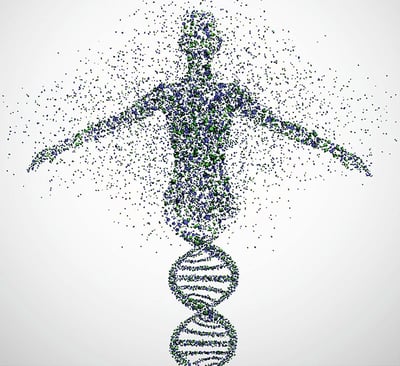
Relevance: High


Strength of Science: High


Research Timeline: Post Approval


Study : Disparities in research impact breast screening guidelines
Relevance: High


Strength of Science: High


Research Timeline: Post Approval


Most relevant for: Women at average risk for breast cancer
For women at average risk of breast cancer, the United States Preventive Services Task Force (USPSTF) currently recommends beginning annual breast cancer screening at age 50. However, because these guidelines are largely based on data from white women, they may not be sensitive to racial differences. A new study assesses the age distribution of breast cancer cases across race/ethnicity in the U.S. (6/21/18)
Read More
Relevance: Medium-High


Strength of Science: Medium-High


Research Timeline: Human Research


Study : Mutations in Lynch syndrome genes MSH6 and PMS2 may be associated with breast cancer
Relevance: Medium-High


Strength of Science: Medium-High


Research Timeline: Human Research


Most relevant for: Women with an MSH6 or PMS2 mutation
Some women with mutations in MSH6 and PMS2, two Lynch syndrome genes, may have a modest (2 to 3-fold) increased risk for breast cancer. (6/14/18 updated 09/25/19)
Read More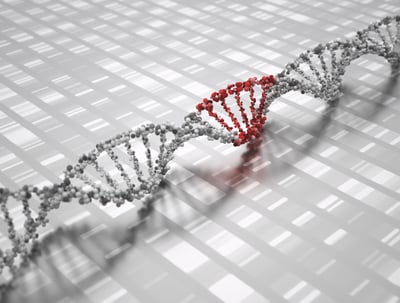
Article : The right not to know when not knowing is dangerous
Most relevant for: People with Icelandic heritage
Healthcare providers are bound by the guiding principle of doing no harm. But how does this concept apply to their patients who have not consented to genetic testing or who do not want to know their results? In that case, is providing test results more harmful or not? Anna Clausen explores these issues in the context of breast cancer gene testing in her Global Health Now article “The Right Not to Know: When Ignorance is Bliss but Deadly.” (4/20/18)
Read More
Study : FDA updates report on risk of lymphoma from breast implants
Most relevant for: Women who currently have textured implants or expanders or who have had them in the past
Note: On 07/25/19, the FDA announced a recall of Allergan BIOCELL textured implants and expanders, due to their association with BIA-ALCL. On October 27, 2021 the FDA announced stronger guidance on breast implant safety.
In March 2017, the Food and Drug Administration reported that patients with breast implants may be at increased risk for a rare type of lymphoma. This was covered in a previous XRAYS review. The FDA has continued to collect data since the first reported association in 2011. Recently, the agency released an update on the number of reported cases of breast implant-associated lymphoma and lifetime risk estimates for women with textured breast implants. (04/02/18)
Read More
Relevance: Medium-High


Strength of Science: Medium


Study : Take your time, follow your heart: strategies for communication about family planning
Relevance: Medium-High


Strength of Science: Medium


Most relevant for: Young high risk women
When a woman is newly diagnosed with a BRCA mutation, she faces many risk management decisions. Although many of these decisions impact family planning, little guidance is available on how to communicate this information. This study examines female previvors’ advice on effective strategies for discussing family planning decisions. (03/28/18)
Read More
Relevance: High


Strength of Science: High


Research Timeline: Post Approval


Study : Should biannual MRIs replace annual mammograms in high-risk women?
Relevance: High


Strength of Science: High


Research Timeline: Post Approval


Most relevant for: Women at increased risk for breast cancer due to an inherited mutation
The risk of breast cancer is exceptionally high in women who have a personal or family history of breast cancer or who carry a mutation in BRCA or certain other genes. More frequent screening is one strategy for early detection of breast cancer for these women. Study results presented at the 2017 San Antonio Breast Cancer Symposium suggest that MRI screening every 6 months may be more effective than the currently recommended annual breast MRI and annual mammogram in detecting early stage breast cancers-which are more treatable-in high-risk women. (2/1/18)
Read More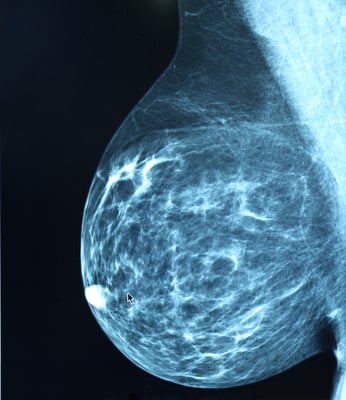
Relevance: Medium-High


Strength of Science: Medium-High


Research Timeline: Post Approval


Study : What is the risk of breast cancer recurrence after nipple-sparing mastectomy?
Relevance: Medium-High


Strength of Science: Medium-High


Research Timeline: Post Approval


Most relevant for: Breast cancer patients who are considering or have had a nipple sparing mastectomy
Nipple-sparing mastectomy (NSM) offers better cosmetic results for women who have immediate breast reconstruction (at the same time as their mastectomy). Over the past decade, NSM has gained popularity among surgeons and patients. Studies show that women who keep their own nipples have higher rates of satisfaction and psychological well-being after mastectomy and reconstruction compared to women who lose their nipples. However, little data exists on the long-term risk of recurrence following NSM. New research adds to a growing body of evidence suggesting that risk of recurrence is low after NSM in carefully selected patients with breast cancer. (1/25/18)
Read More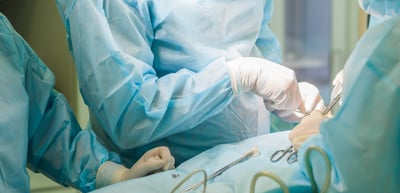
Relevance: Medium-High


Quality of Writing: High


Article : Dense breasts and mammograms: Jill Goodacre’s story
Relevance: Medium-High


Quality of Writing: High


Most relevant for: Women with dense breast tissue on mammograms
Korin Miller’s piece for SELF magazine focuses on why women with dense breasts may need more than a screening mammogram. Miller highlights the recent story in People magazine of Jill Goodacre, a former Victoria’s Secret model and the wife of recording artist and talk show host Harry Connick Jr. Goodacre told of her breast cancer diagnosis 5 years ago after having additional screening of her dense breast tissue following a normal mammogram. (12/8/17)
Read More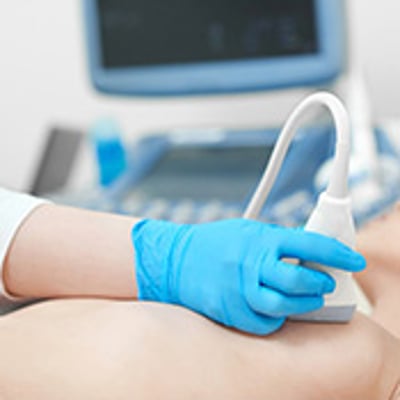
Study : Alcohol and breast cancer risk in African American women
Most relevant for: African American women who would like to lower their breast cancer risk
The link between alcohol intake and breast cancer is well known, but most studies have involved only White women. Recently, a large study of more than 22,000 African American (AA) women found that similar to White women, increased alcohol consumption is associated with a greater risk of breast cancer. (10/27/17)
Read More